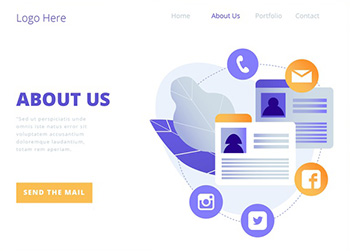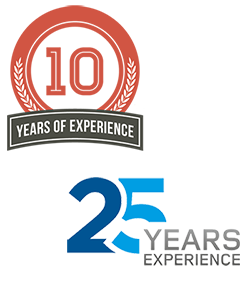 The About page is one of the most important pages on your website.
The About page is one of the most important pages on your website.
A good one can help gain customers and increase your sales.
But a bad one can cause people to click away to your competitors.
Before doing business online, many people check out the About page to learn more about your company, your history, your mission, your values, and who you serve.
This gives you a great opportunity to connect with your prospective clients or customers.
The About page lets you share your origin story and company values (a recent study found 64% of are consumers more likely to buy if they share your values.)
 While the About page needs to tell your story and talk about why you do what you do, it should be mostly about your website visitors and what you can do for them.
While the About page needs to tell your story and talk about why you do what you do, it should be mostly about your website visitors and what you can do for them.
Explain things so that your visitors feel like you understand them and why they're on your site.
A well-written About page can lead to more clicks, email subscribers, requests for sales calls, and revenue.
Good content on your About page also helps your website's overall search engine optimization (SEO), which brings more visitors to your site.

Share a story about your company in a way that helps your visitors relate to you.
The story should establish your qualifications to solve the visitor's problems by using your product or service.
It should build trust and make people feel comfortable buying from you.
It should personalize your company (especially if you're a larger business).
You want your ideal clients or customers to know that your products or services are a great solution for them.
You also want the people you don't serve to understand that quickly.
You can help people determine for themselves if you're a good fit by making statements they can mentally agree (or disagree) with.
These can be things like statements of your commitments (e.g. high quality, fair prices, excellent customer service, etc.) or who you serve (e.g. busy moms wanting quick and nutritious meals for their kids, or companies who need email newsletter management done for them)
Use testimonials, case studies, news coverage, and any other “social proof” that reinforce your values and offerings.
 If you've been around a while and can show impressive numbers such as “20 years of experience” or “over 10,000 customers served”, go ahead and do that.
If you've been around a while and can show impressive numbers such as “20 years of experience” or “over 10,000 customers served”, go ahead and do that.
Depending on your business, it can be helpful to include the names or logos of recognizable companies you've worked with.
For B2B companies, having your prospects see examples of past successes is a key factor influencing their decision to buy from you so be sure to highlight those.
If you sell more complicated products or services, your About page can explain how your solutions work.
If you like this kind of content, get it sent right to your inbox.
Yes, Send It To Me!
You can talk about the expertise and training of your staff and begin mitigating any hesitancy or concern buyers might have.
Every web page on your site, including the About page, should direct the visitor somewhere.
Don't leave your About page as a dead end!
Think about what a good next action might be, for example a signing up for your newsletter, downloading a case study or white paper, emailing you with a question, or requesting a call.
Then use a button or other prominent method to get the visitor to take that action.
The About page is an often overlooked, but critical, part of a successful website.
It's a good opportunity to tell your story, highlight your expertise, showcase your successes, and reassure visitors that your solutions will solve their problems.
How does your About page look right now? Get in touch and let us know. We might be able to offer some suggestions for improvements.